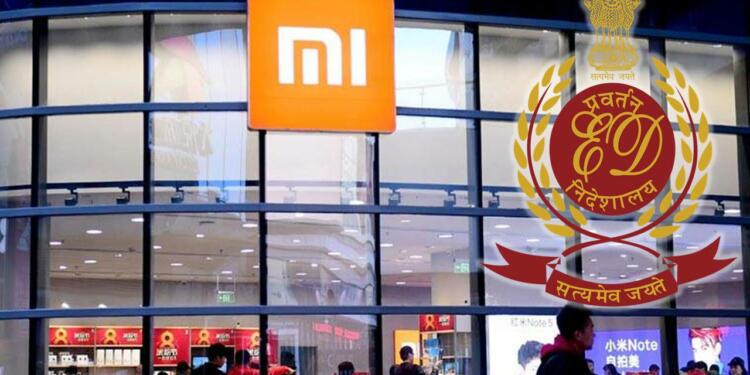Xiaomi has landed itself in the hot soup yet again. This time, matters are very serious and threaten to jeopardise the Chinese company’s rather illustrious run in India. The Enforcement Directorate (ED) on Saturday announced it had seized more than ₹ 5,500 crores in assets from the Indian subsidiary of Chinese smartphone maker Xiaomi. As it turns out, Xiaomi India has been paying illegal remittances to its Chinese masters for the past several years, while brazenly flouting Indian foreign exchange laws (FEMA). The company has remitted foreign currency equivalent to ₹5,551.27 crores to three foreign-based entities which include one Xiaomi group entity, in the guise of royalty.
Xiaomi essentially illegally sent remittances worth 55.5 billion rupees since 2015 to entities in China and the United States. A statement by the Enforcement Directorate said, “Such huge amounts in the name of royalties were remitted on the instructions of their Chinese parent group entities. The amount remitted to other two US-based unrelated entities was also for the ultimate benefit of the Xiaomi group entities.”
The ED added, “Xiaomi India procures completely manufactured mobile sets and other products from the manufacturers in India. Xiaomi India has not availed any service from the three foreign-based entities to whom such amounts have been transferred. Under the cover of various unrelated documentary façade created amongst the group entities, the company remitted this amount in the guise of royalty abroad which constitutes a violation of Section 4 of the FEMA. The Company also provided misleading information to the banks while remitting the money abroad.”
Xiaomi Might Not Survive This
What has happened to Xiaomi is that it has been exposed. Now, criminal action will obviously be taken against the Chinese company. Besides, coping with and asset seizure of ₹5,500 crore will not be a walk in the park for the company. For all practical purposes, Xiaomi is in for a very rough patch in India.
On its part, Xiaomi is trying to put up a brave face, but is convincing nobody. In a statement, Xiaomi India said, “These royalty payments that Xiaomi India made were for the in-licensed technologies and IPs used in our Indian version products … we are committed to working closely with government authorities to clarify any misunderstandings.”
Xiaomi added that it complies with Indian laws and believed its “royalty payments and statements to the bank are all legit and truthful”.
Xiaomi and the Modi Government
The Central Government led by Prime Minister Narendra Modi is not a very big fan of Xiaomi. In January this year, the Union Ministry of Finance had said that Xiaomi India was evading customs duty by way of undervaluation, as a result of which an investigation was initiated by the Directorate of Revenue Intelligence (DRI) against Xiaomi India and its contract manufacturers.
Prime Minister Modi has been pushing for an ‘Aatmanirbhar Bharat’ ever since the Covid-19 pandemic broke out and upended global supply chains. Xiaomi, being a Chinese brand, is a hindrance to India achieving self-sufficiency in the smartphone sector.
Read more: After India’s action against Xiaomi, China sings songs of obedience and compliance
Xiaomi central to China’s smartphones domination in India
China dominates India’s huge smartphones market that witnessed a sale of over 150 million mobile phones in 2020 alone. According to Counterpoint Research, smartphone shipments were expected to reach 173 million in India in 2021.
In the July-September 2020 quarter, Chinese brands captured 74 percent of the Indian smartphone market. Xiaomi alone accounted for 22 percent of the shipment share.
India’s smartphones market just keeps getting bigger because of its young population demographics, increasing incomes and a craze for using smartphones.
Now that the Enforcement Directorate has taken massive action against Xiaomi, and the company is suffering a big crisis in India, the future for Chinese smartphone sellers of all kinds looks uncertain. India has sent a resounding message to China – your smartphone companies need to brace for impact.
























